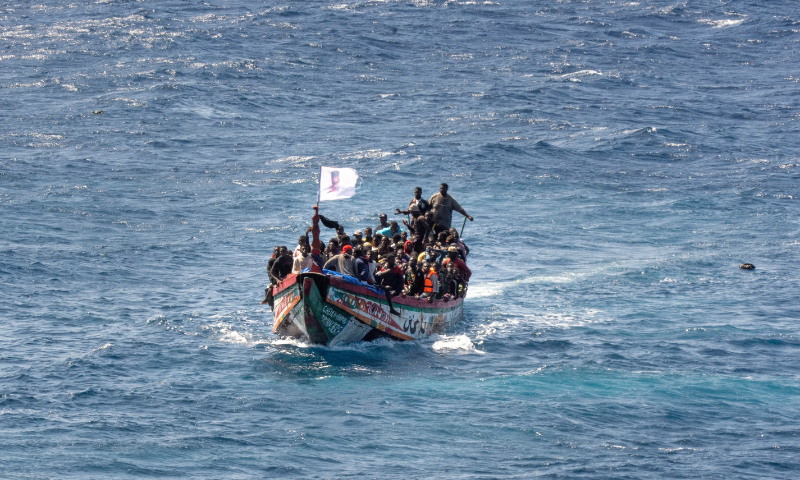ROME: Italy on Monday began transferring migrants intercepted in the Mediterranean to processing centers in Albania, marking a first in Europe that has drawn criticism from human rights organizations.
The Italian navy’s Libra patrol vessel departed with the initial group of would-be asylum seekers, although the exact number on board was not disclosed. According to reports, the migrants are primarily from Egypt and Bangladesh and are expected to arrive in Albania by Wednesday.
The move comes as part of a strategy by far-right Prime Minister Giorgia Meloni, who assumed office in October 2022 with a commitment to stem the flow of migrants arriving on Italy’s shores from North Africa.
In November 2022, Meloni reached an agreement with Albanian Prime Minister Edi Rama to process asylum seekers in Albania, a country that is not a member of the European Union.
Under this five-year deal, which costs Italy approximately €160 million ($175 million) annually, adult male migrants intercepted by Italian naval or coastguard vessels in international waters will be transferred for initial screening at sea.
From there, a determination will be made regarding which migrants come from countries deemed “safe,” which could facilitate expedited repatriation processes.
Upon arrival in Albania, migrants will be taken to a center in the northern port of Shengjin for registration and health checks before being sent to another facility in Gjader to await the processing of their asylum claims. The Gjader center includes sections for migrants with rejected asylum applications as well as a small detention area.
While the Italian government has stated that the centers will accommodate up to 3,000 people, reports indicate that the current capacity may be less than half that figure. Notably, migrants classified as vulnerable under EU law—such as minors, women, and those with mental health issues or victims of trafficking—are exempt from the transfer program and will have their cases processed in Italy.
As Italy’s centers in Albania open just before an EU summit in Brussels this week, migration policies will be a key discussion point, including efforts to expedite the return of migrants who do not qualify for asylum. However, the initiative has faced backlash from human rights advocates, who question whether Albania can provide adequate protection for asylum seekers.
Interior Minister Matteo Piantedosi characterized the facilities as “light detention” centers, saying that there is no barbed wire and that assistance will be provided. “Everyone can apply for international protection and receive a response in a few days,” he stated.
However, concerns have been raised regarding the facilities’ operational status. The UILPA prison guards’ union, whose members will oversee the centers in Albania, warned that the assessment of conditions was overly optimistic, with reports of incomplete water and electricity supplies.
Meloni’s administration has also forged agreements with other nations, including Tunisia, to curb illegal immigration. Additionally, Italy has renewed a 2017 deal with the Libyan government, providing training and funding to the Libyan coastguard to deter migrant departures or return those already at sea.























